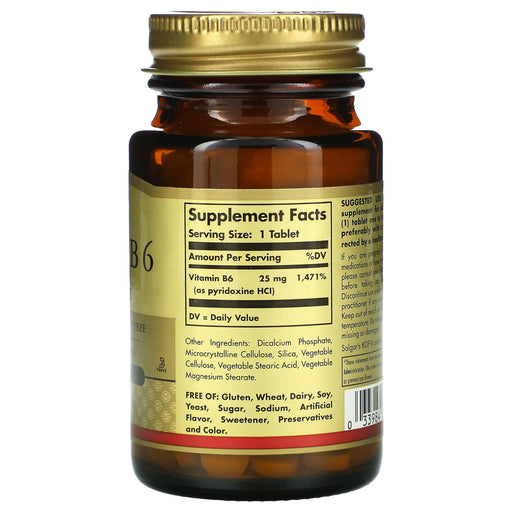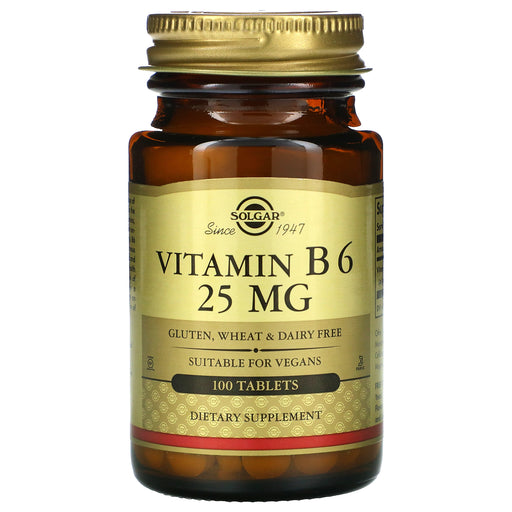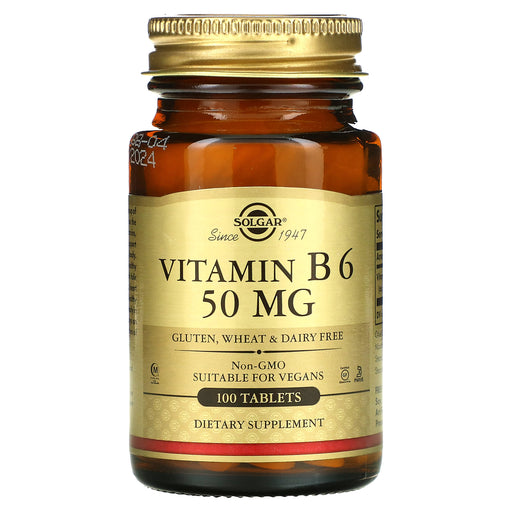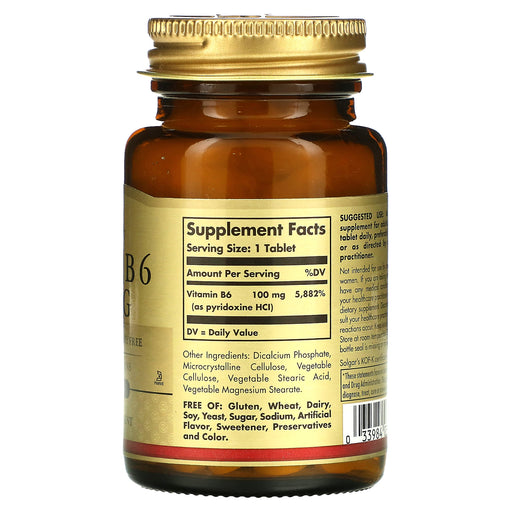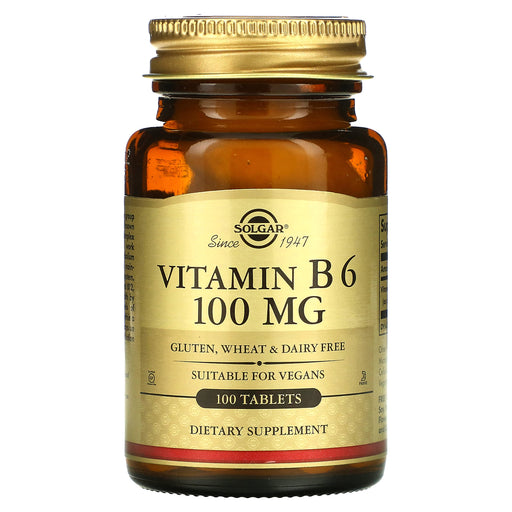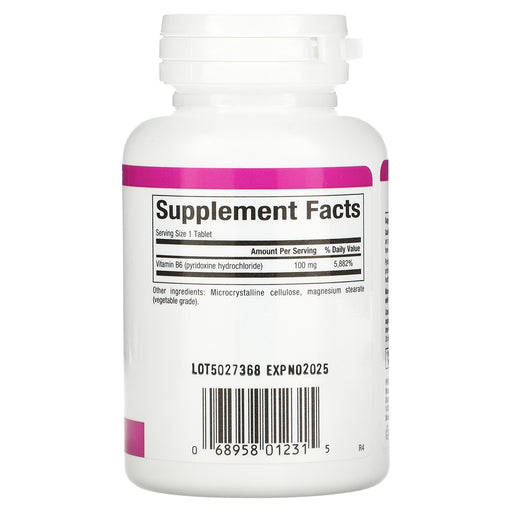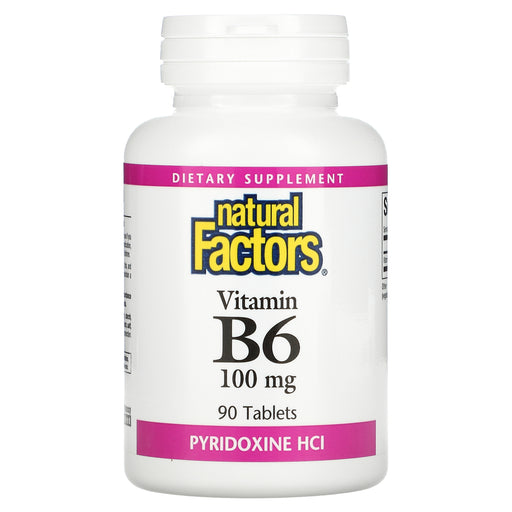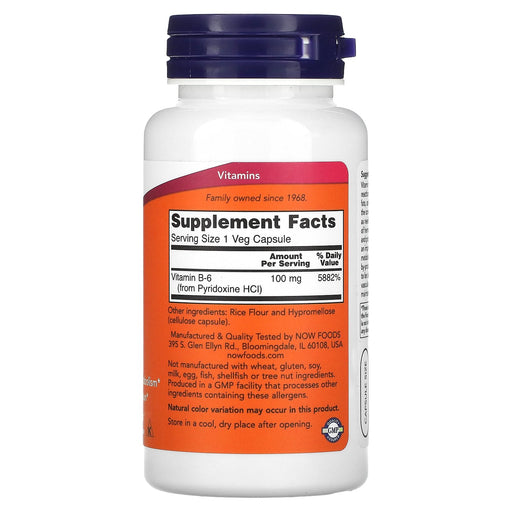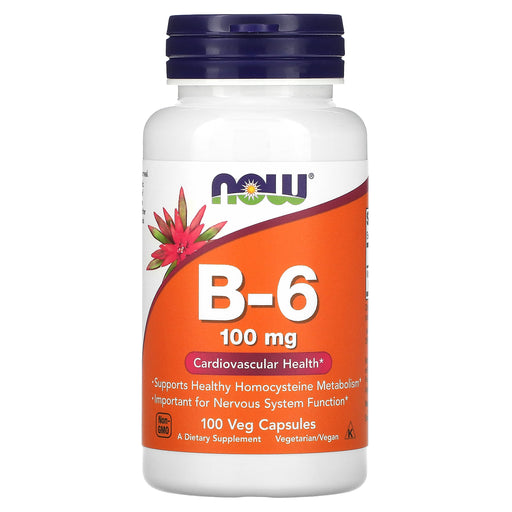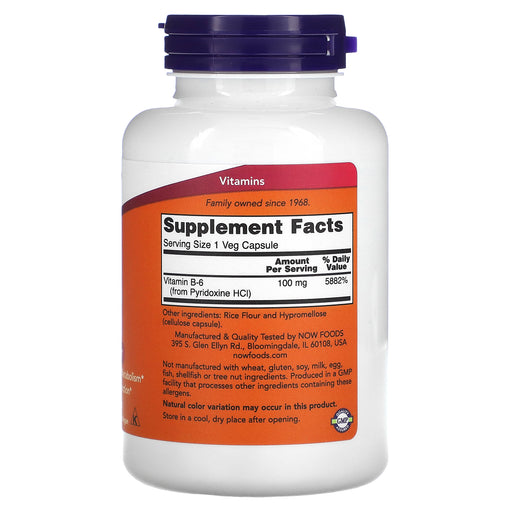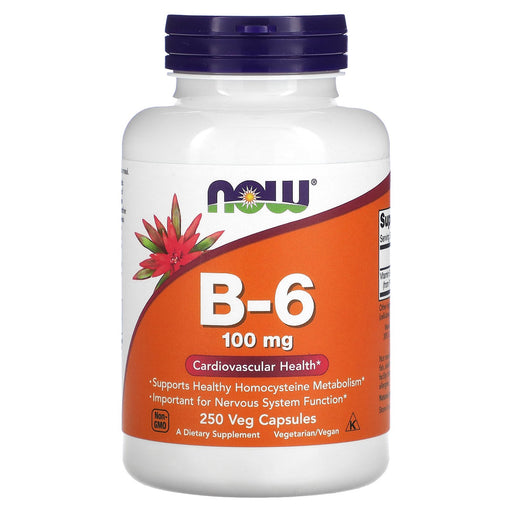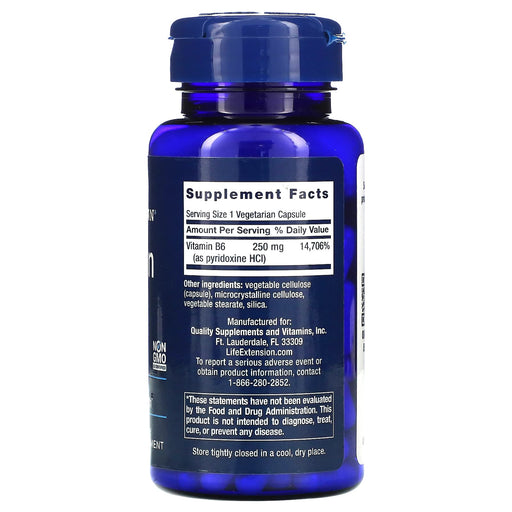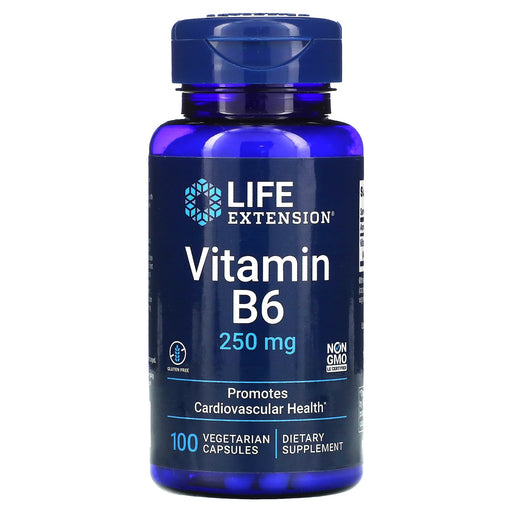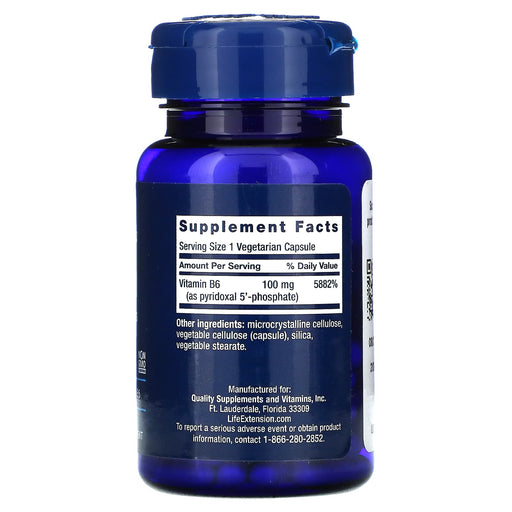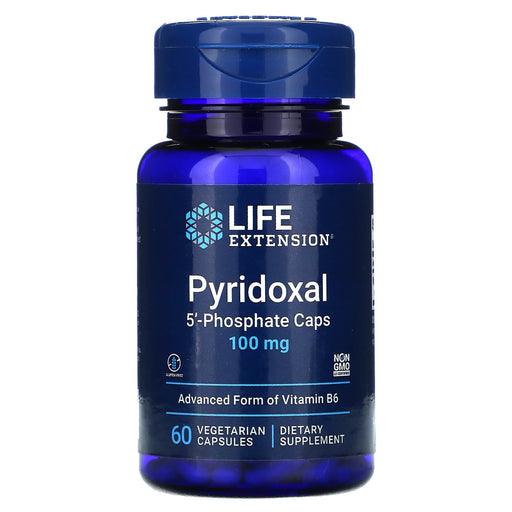
Unleash Your Body's Potential with the Power of Vitamin B6 (Pyridoxine)
Vitamin B6, also known as pyridoxine, is an essential water-soluble nutrient that plays a vital role in numerous physiological processes, including neurotransmitter synthesis, amino acid metabolism, and immune function. As a key member of the B-complex family, vitamin B6 works synergistically with other nutrients to support optimal health and well-being. At Health Orchard, we offer a carefully curated selection of high-quality vitamin B6 supplements, empowering you to harness the multifaceted benefits of this crucial nutrient.
The Importance of Vitamin B6: A Closer Look at Its Essential Functions
Vitamin B6 is a powerhouse nutrient that contributes to a wide range of bodily functions essential for overall health. Some of the key roles of vitamin B6 include:
- Neurotransmitter Synthesis: Vitamin B6 is a critical cofactor in the synthesis of several neurotransmitters, including serotonin, dopamine, and GABA. These neurotransmitters play essential roles in regulating mood, sleep, appetite, and cognitive function. Adequate vitamin B6 intake supports healthy neurotransmitter levels and overall brain health.
- Amino Acid Metabolism: Vitamin B6 is involved in the metabolism of amino acids, the building blocks of proteins. It plays a crucial role in the synthesis, breakdown, and interconversion of various amino acids, supporting the body's ability to build and repair tissues, enzymes, and hormones.
- Immune Function: Vitamin B6 is essential for the proper functioning of the immune system. It supports the production of white blood cells, particularly lymphocytes, which help protect the body against infections and diseases. Adequate vitamin B6 intake may help boost immune response and reduce the risk of certain health conditions.
- Homocysteine Regulation: Vitamin B6, along with folate and vitamin B12, helps regulate levels of homocysteine, an amino acid that, when elevated, can contribute to an increased risk of heart disease and cognitive decline. By supporting healthy homocysteine metabolism, vitamin B6 promotes cardiovascular and brain health.
- Red Blood Cell Formation: Vitamin B6 plays a role in the production of hemoglobin, the protein in red blood cells that carries oxygen throughout the body. Adequate vitamin B6 intake supports healthy red blood cell formation and helps prevent anemia, a condition characterized by a lack of healthy red blood cells.
Signs and Symptoms of Vitamin B6 Deficiency
While severe vitamin B6 deficiency is rare in developed countries, mild to moderate deficiencies can occur due to various factors, such as poor dietary intake, malabsorption disorders, or increased nutritional demands. Some common signs and symptoms of vitamin B6 deficiency include:
- Skin rashes or dermatitis
- Glossitis (swollen, sore tongue) or cheilosis (cracked, sore lips)
- Mood changes, such as irritability, anxiety, or depression
- Weakened immune system and increased susceptibility to infections
- Fatigue and low energy levels
- Peripheral neuropathy (numbness or tingling in the hands and feet)
Certain individuals may be at a higher risk for vitamin B6 deficiency, including:
- Those with malabsorption disorders, such as celiac disease or inflammatory bowel disease
- Individuals following restrictive diets or experiencing malnutrition
- Pregnant and breastfeeding women, who have increased nutritional demands
- Older adults, who may have reduced absorption and utilization of nutrients
- Individuals with alcohol use disorder, as alcohol can interfere with vitamin B6 metabolism
- Those taking certain medications, such as oral contraceptives or corticosteroids, which may deplete vitamin B6 levels
The Benefits of Vitamin B6 Supplementation
While it's always best to obtain nutrients from a balanced diet rich in whole foods, vitamin B6 supplements can be beneficial for individuals who may not be meeting their daily requirements or those with increased needs. Some of the potential benefits of vitamin B6 supplementation include:
- Supporting Brain Health and Mood: Vitamin B6 is essential for the synthesis of neurotransmitters that regulate mood, such as serotonin and dopamine. Adequate vitamin B6 intake may help support emotional well-being, reduce stress and anxiety, and promote a positive mood.
- Enhancing Cognitive Function: Vitamin B6 plays a crucial role in cognitive health by regulating homocysteine levels and supporting neurotransmitter production. Regular supplementation may help improve memory, concentration, and overall brain function, particularly in older adults.
- Boosting Immune Function: Vitamin B6 is involved in the production and function of white blood cells, which are essential for a strong immune response. Supplementing with vitamin B6 may help bolster the immune system, reduce the risk of infections, and support overall health.
- Promoting Cardiovascular Health: By regulating homocysteine levels and supporting healthy blood vessel function, vitamin B6 may help reduce the risk of heart disease and stroke. Additionally, vitamin B6's role in red blood cell formation and oxygen transport further supports cardiovascular health.
- Supporting Healthy Pregnancy: Adequate vitamin B6 intake is crucial during pregnancy for the proper development of the fetal brain and nervous system. Vitamin B6 supplements may help reduce the risk of certain pregnancy complications, such as morning sickness and preeclampsia.
Choosing the Best Vitamin B6 Supplement for Your Needs
When selecting a vitamin B6 supplement, it's essential to choose a high-quality product from a trusted source. At Health Orchard, we've done the hard work for you, curating a selection of the best vitamin B6 supplements on the market, each rigorously tested for purity, potency, and safety.
Here are some factors to consider when choosing a vitamin B6 supplement:
- Form: Vitamin B6 supplements are available in various forms, including pyridoxine hydrochloride, pyridoxal phosphate, and pyridoxal-5-phosphate (P5P). P5P is the active form of vitamin B6 and may be more easily absorbed and utilized by the body. Consider your individual needs and preferences when selecting the most suitable form.
- Dosage: The recommended daily allowance (RDA) for vitamin B6 varies by age and gender, with adult men and women requiring 1.3-1.7 mg per day. However, some individuals may benefit from higher doses, particularly those with specific health concerns or deficiencies. Always follow the recommended dosage on the product label and consult with a healthcare professional before exceeding the RDA.
- Brand Reputation: Choose vitamin B6 supplements from reputable brands with a history of producing high-quality, effective products. Look for brands that prioritize transparency, third-party testing, and adherence to Good Manufacturing Practices (GMP) to ensure the highest standards of quality and safety.
- Synergistic Nutrients: Some vitamin B6 supplements may include other B-complex vitamins or synergistic nutrients that work together to enhance the overall benefits. Consider a comprehensive B-complex supplement or a formula that includes supportive nutrients like magnesium, zinc, or taurine for a more well-rounded approach.
- Allergen-Free and Non-GMO: If you have specific dietary restrictions or preferences, look for vitamin B6 supplements that are free from common allergens, such as gluten, dairy, or soy, and those that are derived from non-GMO sources.
Maximizing the Benefits of Vitamin B6 Supplementation
To get the most out of your vitamin B6 supplement, consider the following tips:
- Take with Food: Vitamin B6 is best absorbed when taken with a meal, as it is a water-soluble nutrient that requires the presence of other nutrients and enzymes for optimal utilization. Taking your supplement with food can also help reduce the risk of digestive discomfort.
- Pair with a Balanced Diet: While vitamin B6 supplements can help fill nutritional gaps, they should not replace a balanced diet rich in whole foods. Focus on consuming a variety of nutrient-dense foods, including poultry, fish, potatoes, non-citrus fruits, and fortified cereals, to ensure an adequate intake of vitamin B6 and other essential nutrients.
- Consider Timing: Some individuals may find that taking vitamin B6 in the morning helps support energy levels and cognitive function throughout the day, while others may prefer taking it in the evening for a more restful sleep. Experiment with different timing to find what works best for your body and lifestyle.
- Monitor for Interactions: Vitamin B6 supplements may interact with certain medications, such as antidepressants, anticonvulsants, and chemotherapy drugs. If you are taking any medications, consult with a healthcare professional before starting a vitamin B6 supplement to ensure safety and avoid potential interactions.
- Store Properly: To maintain the potency and stability of your vitamin B6 supplement, store it in a cool, dry place, away from direct sunlight and moisture. Avoid exposing your supplements to extreme temperatures or humidity, which can degrade the active ingredients over time.
Experience the Unleashing Power of Vitamin B6 Supplements from Health Orchard
At Health Orchard, we're dedicated to providing you with access to the highest-quality vitamin B6 supplements available, empowering you to take control of your brain health, immune function, and overall well-being. Our carefully curated selection offers a range of potencies and formats, ensuring that you find the perfect supplement to meet your unique needs and preferences.
Whether you're looking for supplements to support cognitive function and mood, bolster immune health, promote cardiovascular well-being, or enhance overall vitality, our vitamin B6 supplements provide the essential nutrition you need to thrive. With our unwavering commitment to quality, transparency, and your success, you can trust Health Orchard to be your partner in optimal health.
Experience the transformative power of this vital nutrient and discover the difference that premium, science-backed vitamin B6 supplementation can make in your life. Shop our collection today and take the first step towards unleashing your body's full potential for vibrant energy, mental clarity, and optimal well-being.
Frequently Asked Questions about Vitamin B6 Pyridoxine
1. What is vitamin B6 pyridoxine used for?
Vitamin B6 (pyridoxine) is an essential nutrient that plays a crucial role in various bodily functions:
- Protein metabolism: Helps the body break down and use amino acids from dietary protein sources
- Neurotransmitter synthesis: Involved in the production of neurotransmitters, such as serotonin and dopamine, which regulate mood, sleep, and appetite
- Red blood cell formation: Necessary for the production of hemoglobin, which carries oxygen in the blood
- Immune function: Supports the immune system in fighting off infections and diseases
- Homocysteine regulation: Helps regulate levels of homocysteine, an amino acid linked to heart disease risk
- Nausea relief: May help alleviate nausea and vomiting during pregnancy (morning sickness)
- PMS symptom management: May help reduce symptoms of premenstrual syndrome (PMS), such as mood changes and breast tenderness
2. Is it good to take B6 every day?
For most people, it is safe to take vitamin B6 supplements daily, as long as the dosage is within the recommended daily allowance (RDA) or as advised by a healthcare provider. The RDA for vitamin B6 varies by age and sex:
- Adults (19-50 years): 1.3 mg/day
- Women (51+ years): 1.5 mg/day
- Men (51+ years): 1.7 mg/day
- Pregnant women: 1.9 mg/day
- Breastfeeding women: 2.0 mg/day
Consuming vitamin B6 within these recommended amounts is generally safe and beneficial for overall health. However, taking high doses of vitamin B6 (more than 100 mg/day) for prolonged periods can lead to nerve damage and should be avoided unless specifically recommended by a healthcare provider.
3. Who cannot take vitamin B6?
While vitamin B6 is generally safe for most people when consumed in recommended amounts, some individuals should exercise caution or avoid taking B6 supplements without consulting a healthcare provider:
- People with allergies to vitamin B6 or any of its components
- Individuals taking certain medications that may interact with vitamin B6, such as antiepileptic drugs, levodopa, or chemotherapy agents
- People with a rare genetic disorder called pyridoxine-dependent epilepsy
- Those with a history of allergic reactions to vitamin B6 supplements
- People with certain pre-existing health conditions, such as liver or kidney disease, should consult their healthcare provider before taking B6 supplements
Pregnant and breastfeeding women should also consult their healthcare provider before taking any supplements, including vitamin B6, to ensure safety for both mother and child.
4. Is pyridoxine supplement safe?
Pyridoxine (vitamin B6) supplements are generally safe when taken in recommended dosages. The recommended daily allowance (RDA) for vitamin B6 varies by age and sex, but for most adults, it ranges from 1.3 to 1.7 mg/day. Consuming vitamin B6 within these recommended amounts is considered safe and beneficial for overall health.
However, taking high doses of vitamin B6 (more than 100 mg/day) for prolonged periods can lead to nerve damage, causing symptoms such as numbness, tingling, and pain in the hands and feet. This condition, known as sensory neuropathy, is usually reversible once the high-dose supplementation is stopped.
It's essential to follow the recommended dosage instructions on the supplement label or consult with a healthcare provider before taking pyridoxine supplements, especially if you have pre-existing health conditions or are taking medications that may interact with vitamin B6.
5. Is vitamin B6 safe for kidneys?
Vitamin B6 (pyridoxine) is generally safe for the kidneys when consumed in recommended amounts. In fact, adequate vitamin B6 intake may help protect kidney function and reduce the risk of kidney stones in some individuals.
However, people with pre-existing kidney disease or impaired kidney function should consult their healthcare provider before taking vitamin B6 supplements. In some cases, the kidneys may have difficulty processing and eliminating excess vitamin B6, which could lead to a buildup of the vitamin in the body.
Additionally, taking very high doses of vitamin B6 (more than 100 mg/day) for extended periods can cause nerve damage, which may indirectly affect kidney function by altering nerve signaling to and from the kidneys.
As with any supplement, it's essential to follow the recommended dosage instructions and consult with a healthcare provider, especially if you have kidney-related health concerns.
6. Does vitamin B-6 help with nerve pain?
Vitamin B6 (pyridoxine) plays a crucial role in maintaining healthy nerve function, and adequate intake of this vitamin may help alleviate certain types of nerve pain. However, the effectiveness of vitamin B6 in treating nerve pain depends on the underlying cause and the dosage used.
Some research suggests that vitamin B6 may be beneficial for:
- Carpal tunnel syndrome: Taking vitamin B6 supplements may help reduce pain and improve symptoms in people with carpal tunnel syndrome, a condition that causes pain, numbness, and tingling in the hand and wrist.
- Peripheral neuropathy: Adequate vitamin B6 intake may help prevent or slow the progression of peripheral neuropathy, a condition characterized by damage to the nerves outside the brain and spinal cord, often resulting in pain, numbness, and weakness in the affected areas.


